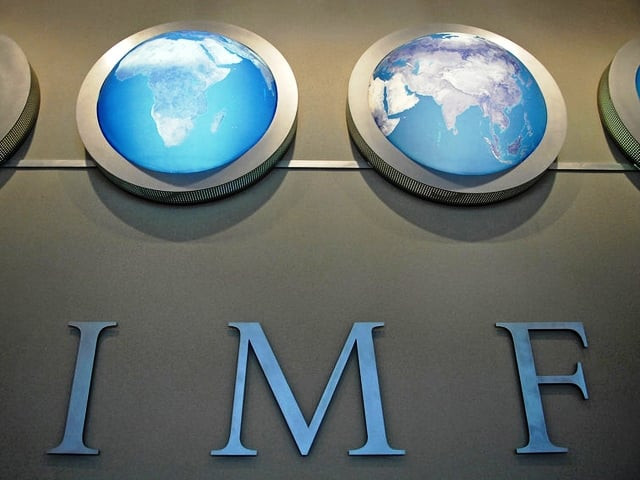Government borrowing behind inflation: IMF
Reduction in inflation rate termed ‘essential’ in the fight against poverty.

According to a statement issued by the IMF on Tuesday, a day after the Pakistan Development Forum concluded, efforts of the State Bank of Pakistan (SBP) to control inflation have been rendered useless by reckless government borrowing – including bumping up the interest rate to make borrowing more expensive for the private sector. “Inflation, especially of food prices, has picked up, compounding the social pains of the recent floods,” said IMF Mission Chief to Pakistan Adnan Mazarei. He said that borrowing from the central bank, along with the shock to food supplies following the floods, has helped push inflation in October to 15.3 per cent from around 13 per cent in August.
“Adherence to the revised 2010-11 budget deficit target (Rs812 billion) will be needed to bring government borrowing from the SBP down to the targeted level, which is essential for achieving a durable reduction in inflation, a major source of poverty,” he added.
The government has resorted to borrowing from the central bank in order to meet expenditures since it has failed to broaden the tax base or cut non-development spending. In four months alone, it has borrowed Rs186 billion from the State Bank to cover outlays.
Governor SBP Shahid Hafiz Kardar has said that the biggest challenge for the central bank was government borrowing, the burden of which fell mainly on the private sector in terms of a squeeze in lending.
“Apart from causing inflation, unrestricted access of the government to borrow from the State Bank complicates liquidity management, dilutes the impact of monetary policy stance and puts pressure on the exchange rate,” he added.
Over the years, total government borrowing from the central bank has touched Rs2.6 trillion – a figure higher than the total size of the revised federal budget.
The central bank raised the discount rate successively in July and September in a bid to counter inflation and will review the rate again towards the end of this month. At present, it stands at 13.5 per cent.
“Market interest rates have risen by 0.7 to 1.5 per cent since June, reflecting both: the increased policy rate and higher inflationary expectations,” said the IMF.
It forewarned Pakistan that the floods will dampen economic growth significantly during the current financial year and will add pressure on the balance of payments and public finances.
“Overall, for 2010-11, we project an average inflation rate of 14 per cent and real GDP growth of 2.75 per cent. The medium-term outlook will be updated when discussions between the authorities and our staff have been completed,” said Mazarei.
Relations between the IMF and Pakistan soured after the latter failed to deliver on the promise of power and tax reforms. The Fund has reiterated that structural reforms are required to improve budgetary performance.
“Two areas stand out. One is the reformed general sales tax. The other is electricity reform, where action is needed to eliminate untargeted subsidies while addressing outages and protecting the poor, and address the problem of circular debt.”
The IMF also shot warning that certain banks in the country were not meeting the statutory capital requirements essential for the sector’s solvency. “Several banks must increase capital to meet their statutory requirements and there is a need to pass amendments to the banking law to strengthen the SBP’s supervisory powers,” said Mazarei.
The central bank’s spokesperson, however, declined to share names of the banks unable to meet capital requirements.
Published in The Express Tribune, November 17th, 2010.



















COMMENTS
Comments are moderated and generally will be posted if they are on-topic and not abusive.
For more information, please see our Comments FAQ